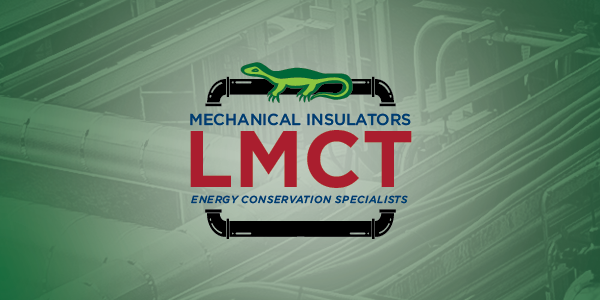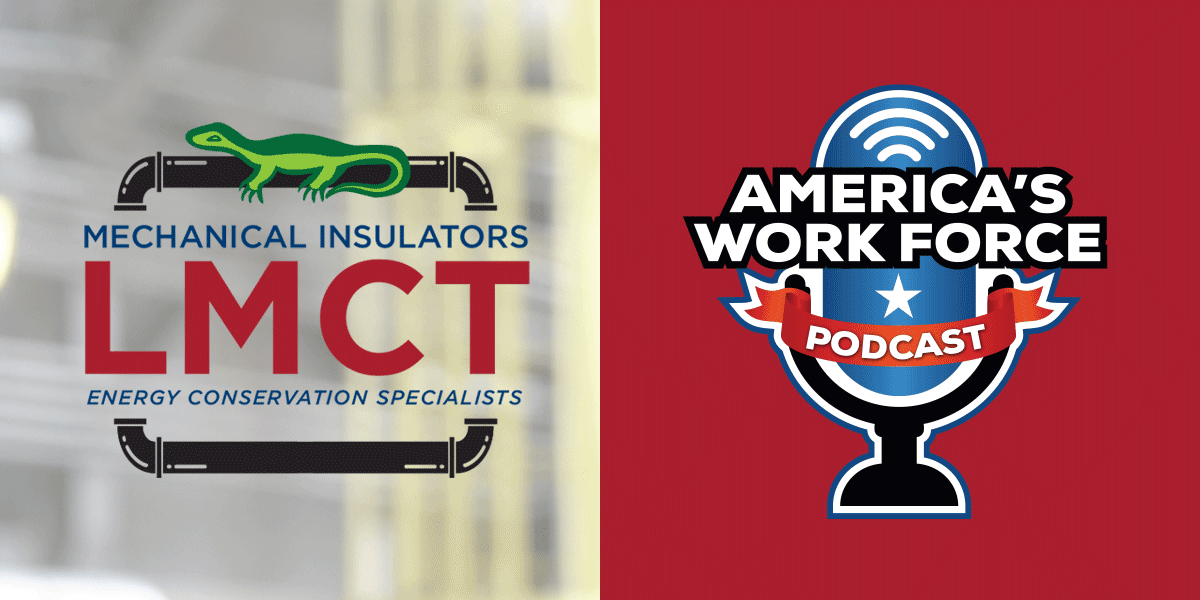.jpg)
Leaders from Pennsylvania Heat and Frost Insulators and Allied Workers Locals 2, 14, 23 and 38 recently joined forces to advocate for the passage of Pennsylvania House Bill 491 from the House Consumer Protection, Technology and Utilities Committee to the General Assembly.
Spearheaded by Michael Oscar from the Oscar Policy Group, LLC, the group of leaders included:
- Local 2 Business Manager James Cassidy
- Local 14 Business Manager Steve Petit
- Local 14 Business Agent Robert Celluci
- Local 23 Business Manager Ronnie Beverly
- Local 38 Business Manager Tip Wright
- International Jurisdictional Director and former Local 23 Business Manager William G. McGee
LMCT Executive Director Pete Ielmini also extended his expertise to help the effort.
.jpg?width=1431&height=1073&name=image003%20(2).jpg)
If passed, Pennsylvania House Bill 491 would add the use of Mechanical Insulation in energy efficiency and conservation programs. The Mechanical Insulation industry leaders have worked behind the scenes to obtain bipartisan support for this bill by promoting Mechanical Insulation as a technology to advance energy and economic savings in communities, while also creating good-paying jobs.
The legislation was sponsored by Rep. Regina G. Young (D-Delaware) and Rep. Thomas Mehaffie (R- Lower Swatara), and co-sponsored by Committee Co-Chairs Rep. Robert F. Matzie (D- Ambridge) and Rep. Jim Marshall (R-Big Beaver Borough).
H.B. 491 amends Act 129 of 2008, to prohibit the Pennsylvania Public Utilities Commission (PUC) from disapproving an Electric Distribution Company’s (EDC) Energy Efficiency & Conservation (EE&C) plan due to the inclusion of mechanical insulation. The PUC reviews all EDC’s EE&C plans and then, the PUC approves cost-effective plans for reducing energy consumption.
Thanks to the help of Ielmini, Mechanical Insulation is a currently recognized interim measure protocol and incorporated into the Technical Resource Manual (TRM). However, it is not a permanent measure.
During his March 5 Committee testimony, Insulators Local 2 Business Manager James Cassidy said that if H.B. 491 passed, it would ensure that all uses of Mechanical Insulation would be approved for Act 129 programs. This will eliminate the need to wait for the TRM to be fully reopened. Further, it would permanently ensure that Mechanical Insulation qualifies under Act 129 and avoids the need for a periodic review by the PUC.
He also explained the benefits of Mechanical Insulation to the Committee.
“Per the American Society of Heating, Refrigerating and Air-Conditioning Engineers, Inc. (ASHRAE), properly installed Mechanical Insulation provides long-term energy efficiency, emission reduction, cost savings and safety benefits,” he said. “ASHRAE has stated that Mechanical Insulation can reduce the number of tons of greenhouse gas emissions into the atmosphere, prevent loss of energy, control condensation, protect occupant safety and public health wellness and regulate surface temperature.
“The National Insulation Association, the approximately 350-member trade association representing the mechanical and specialty insulation industry since 1953, estimates that maintenance of Mechanical Insulation at industrial facilities alone can generate more than $3.6 billion in energy savings per year, and reduce 83 billion pounds of carbon dioxide,” Cassidy said.
He also explained how Mechanical Insulation can help structures currently being built operate efficiently and realize energy savings.
“With new construction, a properly designed and installed Mechanical Insulation system provides an excellent return on investment and quick payback through cost savings,” said Cassidy. “With Mechanical Insulation's energy-saving qualities, a properly designed and installed Mechanical Insulation system immediately reduces the need for energy and results in significant savings. Our members and affiliated Insulator contractors are well-prepared to create a sustainable environment in buildings and facilities through Mechanical Insulation.”
Lastly, Cassidy discussed how this legislation could lead to the creation of additional jobs in an industry that is predicted to grow by 3 percent through 2030. He added that the Bureau of Labor Statistics expects a nationwide increase of 6,000 in Mechanical Insulation jobs over the next 10 years.
Steve DeFrank, Chairman of the Pennsylvania Public Utility Commission, also testified on H.B. 491. After providing his input, he stressed the PUC would cooperate as the bill continues through the process.
“… we intend to work cooperatively and constructively with the General Assembly as you deliberate this legislation and any further changes associated with Act 129 or other energy-related topics,” he said.
The effort by the Mechanical Insulation leaders is a demonstration of how to collectively connect with lawmakers, the business community and utility companies to educate and offer expert information regarding the benefits of Mechanical Insulation.
As the legislation continues its path toward a committee vote, the Mechanical Insulators group will remain steadfast in efforts to advocate for its passage.



Comments